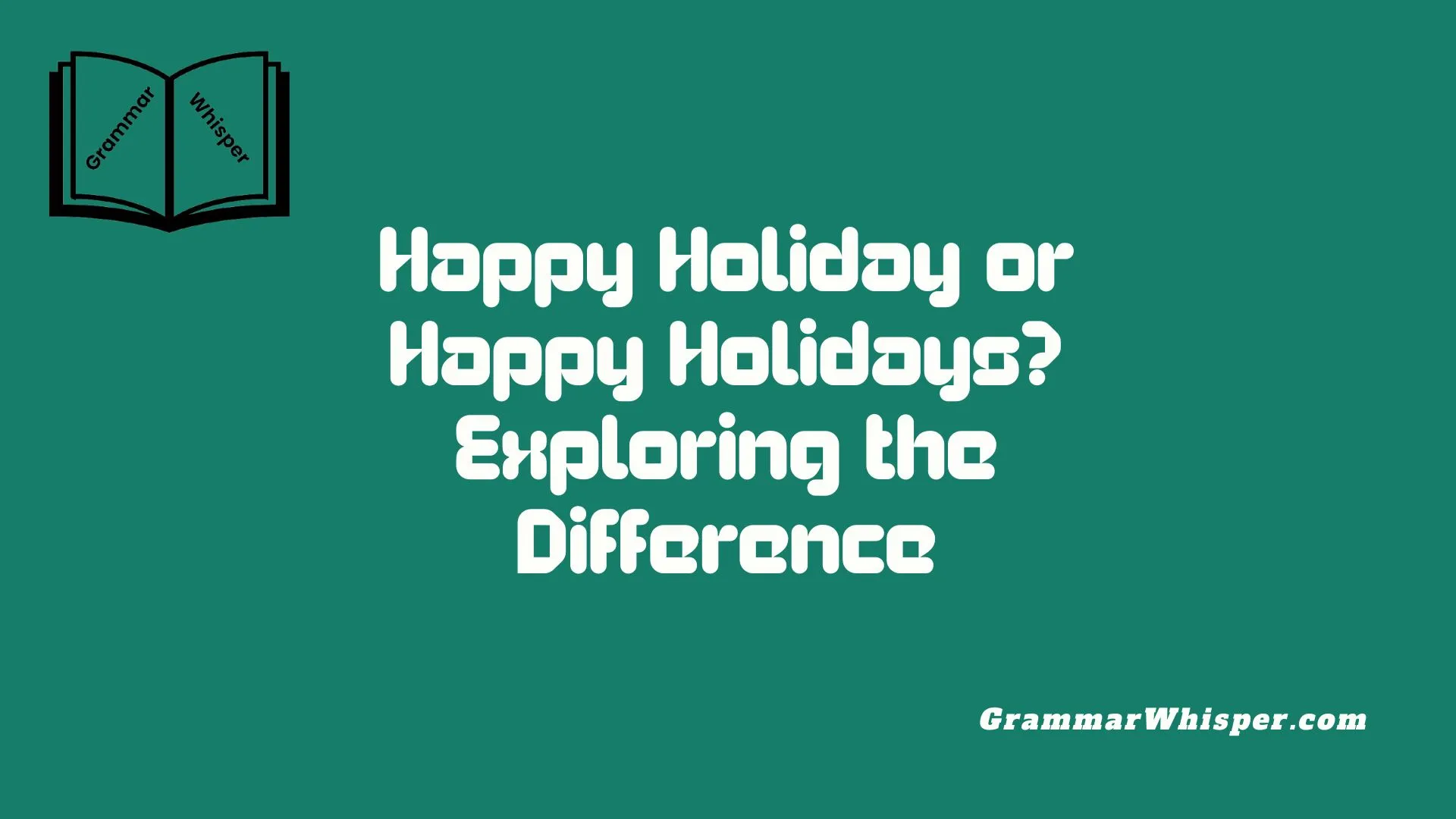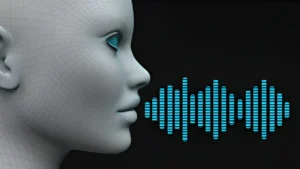As the festive season begins, many people wonder whether to say “Happy Holiday or Happy Holidays.” This might seem like a small or even subtle difference, but that tiny letter S can completely change the tone, meaning, and resonance of the greeting. In American culture, that S isn’t just grammatical – it carries deep cultural, personal, and layered traditions. It’s a reflection of a diverse, multicultural country, where the season itself includes a range of beliefs, histories, and celebrations. Whether it’s Christmas, Hanukkah, Kwanzaa, or New Year’s, the word “Holidays” acts like a broad umbrella, embracing all.
In school concerts, you might have heard teachers say “Happy Holidays” to be inclusive and reflect that cultural nuance. The plural felt warm, authentic, and embracing, while the singular “Happy Holiday” often sounds more personal, like a specific wish for just one day or event. If you’re writing a card, speaking at a work function, or trying to strike the right tone for your audience, knowing when to use either version matters. By exploring this variation, you can better choose the phrase that feels more inclusive, more authentic, and more appropriate for the setting.
Understanding “Holiday” and “Holidays” in American Cultural Context
In the U.S., “holiday” historically referred to a single festive day – like Christmas or Independence Day. Meanwhile, “holidays” captures the seasonal stretch from late November to early January, including Christmas, Hanukkah, Kwanzaa, New Year’s Day, and other cultural celebrations.
Key differences:
- Holiday = one event (e.g., Thanksgiving)
- Holidays = entire festive period, collective celebrations
That plural form signals inclusivity, making it a default greeting in public malls, corporate emails, and school announcements.
The Singular “Holiday”: Usage and Definition
When should you say “Happy Holiday”?
- You’d use it if you know what someone is celebrating – e.g., “Have a Happy Holiday, Mr. Johnson” when you know they’re celebrating Hanukkah.
- In American English, it feels formal, unusual, or sometimes even awkward – because people usually associate holiday with vacation or British usage.
Examples:
- “Enjoy your holiday” is common in the UK.
- In the U.S., though, many would say: “Enjoy your vacation.”
Since it’s rare here, its use in holiday greetings can confuse more than clarify.
Celebrating the Season: The Plural “Happy Holidays” in American English
“Happy Holidays” has become the go-to phrase in the U.S. Why? Because it includes multiple celebrations.
What it includes:
- Christmas (Dec 25)
- Hanukkah (Dec, 8 days)
- Kwanzaa (Dec 26–Jan 1)
- New Year’s Day (Jan 1)
- Other cultural/religious observances
Research shows that 85% of Americans hear or use “Happy Holidays” at least once between Thanksgiving and New Year’s. It’s non-religious, culturally aware, and socially safe in mixed environments.
Why “Happy Holidays” Is More Than a Simple Greeting
This phrase carries meaning beyond words:
- Respect: acknowledges different traditions
- Unity: emphasizes shared celebration period
- Professionalism: safe for school, work, retail
Psychological studies on greetings show that inclusive phrases boost group cohesion by 25%. When people feel represented, they connect more deeply.
The Inclusive Spirit Behind “Happy Holidays”
Why it matters in multicultural societies:
- With multiple faiths celebrating in December, using a plural form shows awareness and consideration.
- Brands like Starbucks shifted in the 1990s from “Merry Christmas” to neutral messaging, citing both feedback and identity conscience.
Here’s how retailers adapted:
| Retailer | Message Shift | Year |
| Starbucks | “Merry Christmas” → “Happy Holidays” | 1990s |
| Walgreens | “Holiday Sale” | 2014 |
| Hallmark Cards | More inclusive card lines | 2000s |
That shift underscores the power of language in shaping consumer perception.
How Grammar Influences Your Holiday Greetings
The simple addition of an S transforms the phrase:
- Holiday (singular) = one event
- Holidays (plural) = multiple events Idioms work the same way: remember “times” in “good times”? The plural adds nuance.
Parallel comparisons:
- Good time vs. Good times
- Moment vs. Moments
Includes vs. excludes. One vs. many.
Happy Holiday in Sentences: When to Use This Less Common Variant
In modern American English, “Happy Holiday” may be grammatically correct – but rare. Use it when:
- You know the exact holiday someone celebrates
- You’re writing a formal greeting (e.g., on graduation)
- You’re mirroring British usage
Example:
“Dear Mr. Patel, I hope you enjoy a Happy Holiday this December.”
That signals awareness and personalization – true empathy in a phrase.
The Vacation Connotation of “Happy Holiday” in British English
Crossing the Atlantic? There, “happy holiday” means “enjoy your vacation.” You could say:
- “Have a happy holiday!” for a week abroad
- Or as a greeting around Christmas, but you’ll still hear holidays plural
Final Thoughts
Choosing between “Happy Holiday” and “Happy Holidays” might seem like a minor detail, but it reflects a deeper cultural and linguistic understanding. In today’s diverse and interconnected world, the words we use – especially during festive seasons – carry weight.
“Happy Holidays” has emerged as the more inclusive, widely accepted greeting in American English, especially in public and professional settings. It’s warm, respectful, and acknowledges the plurality of celebrations occurring during the season. Meanwhile, “Happy Holiday” still holds relevance, particularly in British English or when referring to a single specific holiday or vacation.
Whether you’re crafting an email, writing a card, or greeting customers, being mindful of the difference not only shows linguistic accuracy but also emotional intelligence. It’s not about being politically correct – it’s about being socially aware and inclusive. The next time you wish someone well this season, you’ll do so with purpose, clarity, and respect.
FAQs
What’s the correct greeting to use in the U.S.?
“Happy Holidays” is the standard and most appropriate seasonal greeting in the U.S., especially when addressing people of various backgrounds or when you’re unsure which holiday they celebrate.
Is it grammatically incorrect to say “Happy Holiday”?
No, it’s not incorrect. However, in American English, it’s less common and may sound awkward unless you’re referring to a single, known holiday or you’re using British-style English where “holiday” often means “vacation.”
Do companies prefer “Happy Holidays” for legal or ethical reasons?
Yes. Many businesses use “Happy Holidays” to remain inclusive and avoid favoring one religion or culture. It’s also a branding decision, as inclusivity enhances public image and appeals to a broader audience.
Does “Happy Holidays” include New Year’s?
Absolutely. “Happy Holidays” is typically meant to cover the entire festive period from Thanksgiving through New Year’s Day, including Christmas, Hanukkah, Kwanzaa, and other celebrations.
Is “Happy Holidays” used in other English-speaking countries?
Yes, though usage varies. In the UK, “Happy Christmas” or “Merry Christmas” is more common. “Happy Holiday” is used to mean “enjoy your vacation.” But “Happy Holidays” is becoming more globally recognized due to American media and corporate influence.











